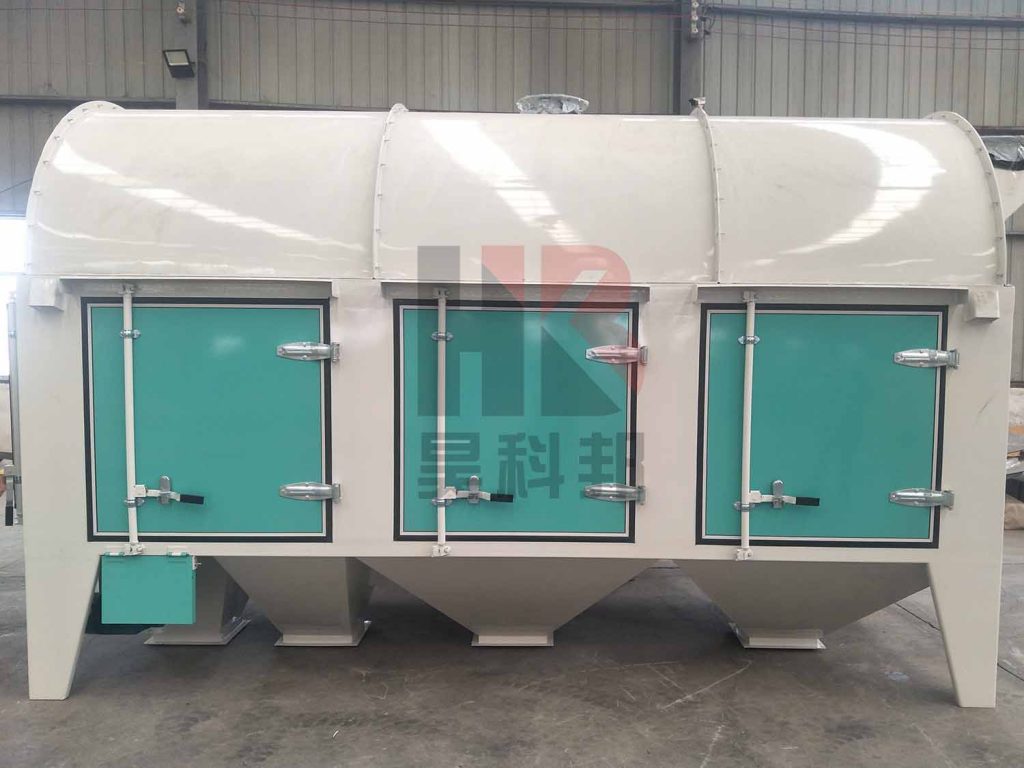This article will explore how to select a drum screen based on grain type, characteristics, and screening requirements to help make informed decisions.

Different grains vary in size, shape, density, and hardness. When selecting a drum screen for grain silos, first identify the grain type to determine the appropriate mesh aperture and drum size.
Besides grain size, characteristics also affect the choice of drum screen. For example, some grains are sticky, like damp rice; others may contain special impurities, such as husked grains. For these characteristics, select drum screens with corresponding adaptability. For sticky grains, choose drum screens with drying or pre-treatment functions.
To determine the parameters of the drum screen for grain silos, consider both screening requirements and output needs. If high grain purity is required, or multi-stage screening and higher precision are needed, opt for drum screens with multiple layers of mesh or special screening functions. Multi-layer mesh can grade and screen grains of different sizes, improving efficiency and precision.
Based on the daily processing volume of the grain silo, select a drum screen with suitable capacity to meet production needs and avoid under- or over-capacity. Small grain silos with low daily output can choose drum screens with moderate capacity, processing around 10 - 30 tons per hour.